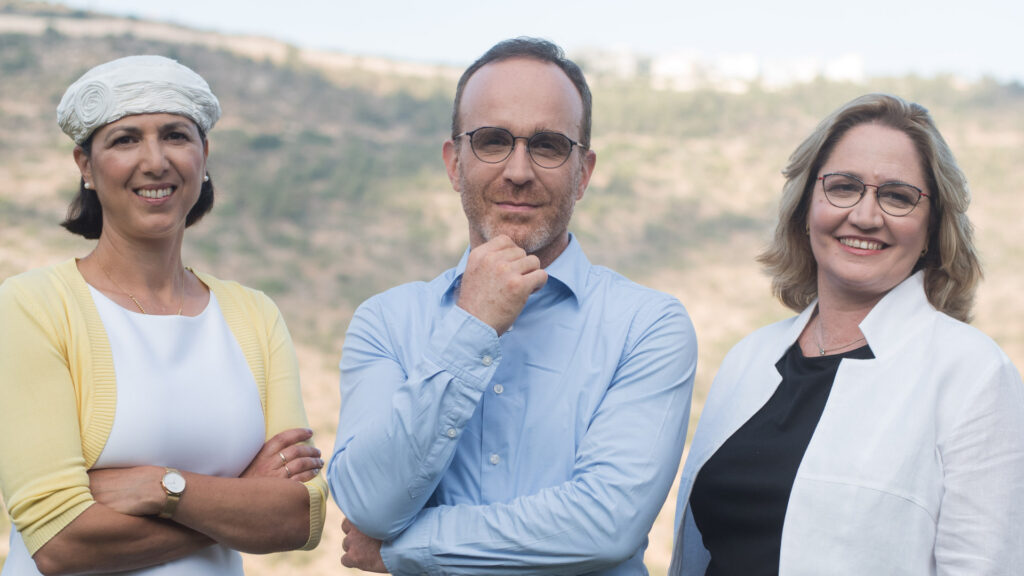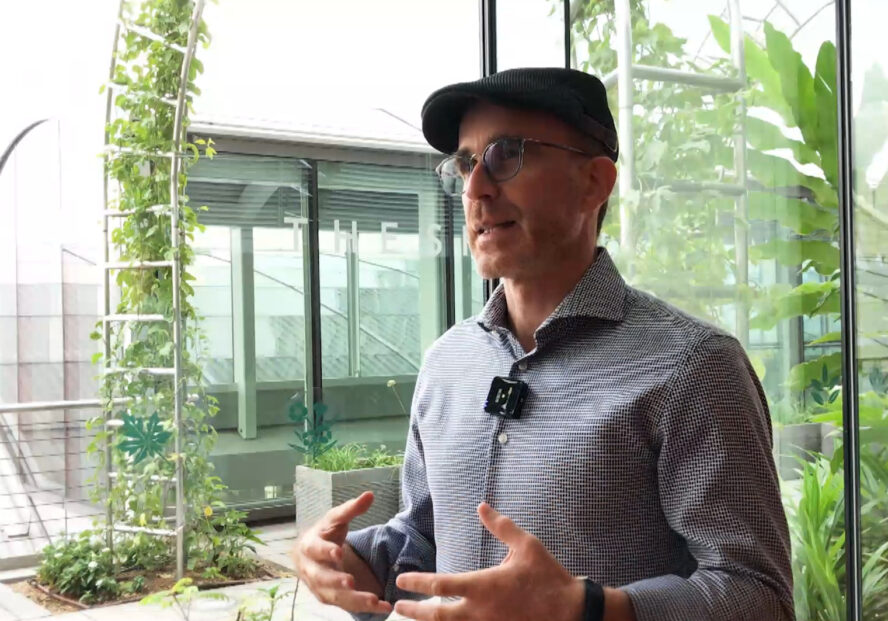Israeli startup Aleph Farms has teamed up with biomanufacturing specialists BBGI and Fermbox Bio to produce cultivated meat in Thailand as part of its ‘asset-light’ growth strategy.
Construction of the facility, which will have a capacity of under 1,000 tons (2 million pounds) year with bioreactors ranging from 2,000-5,000-L, will begin in the second half of 2024 and will likely take 18-24 months, cofounder and CEO Didier Toubia told AgFunderNews.
“With this plant we will continue to test the market, validate consumer acceptance, and drive initial traction before we expand into larger plants in the region.”
‘The cultivated meat industry cannot succeed by adopting biopharma practices’
He added: “Building a viable manufacturing process for cultivated meat will require out-of-the-box thinking and a mindset aligned to large-scale, low-cost manufacturing, like we see in synthetic biology or microbial fermentation.
“The cultivated meat industry cannot succeed by adopting biopharma practices. Fermbox Bio will tap into its vast network of equipment fabricators, industry veterans, and quality experts, to design, build, and operate the proposed facility. It plans to bring innovation in plant design, energy management, equipment design, cell harvest, media recycling, and waste management.”
Toubia noted that Fermbox Bio founder Subramani Ramachandrappa also founded Laurus Bio, which among other things produces cell culture media ingredients such as growth factors via microbial fermentation. As a result, Ramachandrappa had acquired “knowledge of sustaining, growing, and proliferating a multitude of animal cell types,” claimed Toubia.
Meanwhile, BBGI can offer “the infrastructure and financial support necessary to scale manufacturing processes,” he added.
As for the market opportunity for cultivated meat in Thailand, where regulators are preparing guidance on the process for assessing the technology, he said: “We have an MOU with [Thai seafood giant] Thai Union to develop the Thai market together.
“We have research showing that 97% of Thai people are interested in trying cultivated meat, which is quite astonishing, although we need to do more research to look into segmentation and get more granularity. The Thai government is also interested to move into novel food production systems.”

‘Prudent, capital-efficient scale-up’
Having raised $140 million from backers including private equity firm L Catterton, food giant Cargill, and UAE sovereign wealth fund DisruptAD, Aleph Farms is one of the better-funded players in the space, although it has not raised as much as UPSIDE Farms ($608 million), Believer Meats ($387 million) or GOOD Meat ($270 million).
“A prudent, capital-efficient scale-up lets us navigate infrastructure investments thoughtfully, enabling sustainable penetration into key regions,” said Toubia, who has signed memos of understanding with Thai Union, Mitsubishi, and Singapore-based contract manufacturer ESCO Aster as it seeks to build an operation in Southeast Asia.
“This strategy aligns with our commitment to scaling up responsibly, avoiding abrupt, extensive CapEx investments in the process,” added Toubia, who aims to start production in Singapore with ESCO Aster in 2025.
Aleph Farms, which has a pilot facility in Rehovot, Israel, has also acquired a facility and related assets from biotech company VBL Therapeutics in Modi’in, Israel, that will enable it to produce larger quantities of meat in its home market after a retrofit, said Toubia, who recently secured the regulatory greenlight to launch cultivated beef products in Israel.
He added: “We’d describe this as an intermediate phase with mid-scale facilities before going directly to a large-scale facility in the US. The US remains high in our strategy, but in the short to medium term, in the next three to five years, there are a lot of opportunities outside of the US.”
Products and go-to-market strategy
The first products from Aleph Farms will be its signature thin beef steaks (Aleph Cuts), a premium but not a luxury product that the company makes in a two-stage process. It first proliferates cells in a bioreactor, and then transfers them to a tissue bioreactor where multiple cell types are co-cultured around edible scaffolding to create thin strips of tissue.
Most startups in the space—under pressure from investors to get a minimum viable product out in front of consumers—are by contrast harvesting cell biomass (a slurry of cells that have not matured into tissue) and adding extruded vegetable protein to create processed meat products such as nuggets and mince.
While this approach is perfectly valid, said Toubia, cells express different proteins when they have differentiated and matured into muscle and fat tissue, which means that a slurry of cell biomass will not have the same taste, texture or nutritional profile as tissue from slaughtered animals.

‘Mismanagement of expectations’
While Toubia remains confident that Aleph Farms can achieve price parity with premium beef, the industry is still in its infancy, he stressed: “We believe that the cultivated meat industry and the cellular agricultural ecosystem are at a similar stage as renewable energy was 15 or 20 years ago, when solar panels were still expensive and not very efficient and there were few suppliers.”
As for funding, he said, “There were very high expectations [about cultivated meat a couple of years ago] and startups were probably also part of this mismanagement of expectations. But investors also played a role… they poured a lot of money into companies and were pushing them to grow as quick and as big as possible while the technologies were not yet mature enough.
“I think it’s very healthy to see a more fact-based and science-based approach today, and a more cautious approach to scaleup. But I believe we’ll continue to see investments in the space from investors who are sophisticated enough to assess the technological readiness of these companies.”
He added: “We will need to raise additional money to complete this plant in Thailand, for sure, but Aleph Farms has not raised too much at a high valuation, so I think we’re well-positioned. We’re seen as fairly conservative, taking time to optimize and de-risk our process before we invest in larger production facilities.”
‘We need to focus on high-value products’
Asked who will fund cultivated meat plants going forward, he said: “Working closely with governments and international organizations is really important. It’s like renewable energy, which wouldn’t have grown without public private partnerships at the initial stages of scaling up. I don’t think that the private sector alone can make it.
“We also need to work with stakeholders connected to the farming industry to build cultivated meat as an extension to animal agriculture.”
He added: “I also believe that for cultivated meat to gain initial acceptance and to make economic sense, we need to focus on high-value products, which is why we’ve focused on beef. It’s why Tesla started with a sports car before going after the more mainstream market.”
Further reading:
🎥Aleph Farms CEO on cultivated meat: There’s been a ‘mismanagement of expectations’
Crunch time for cultivated meat: ‘Probably 70-90% of players will fail in the next year’





